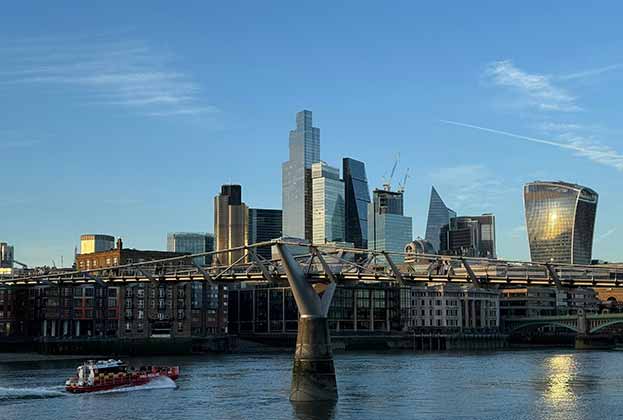Year to date, acquisitions in the European real estate market by Asia Pacific investors have already exceeded 2021 volumes by over €5 billion, a figure which is testament to the enduring role of cross border capital flow in the European markets. Given the current period of ‘price discovery’ in the UK and Europe, against the headwinds of rising debt costs and increasing inflation, we recently travelled to Asia to meet with investors based in Singapore, Hong Kong and Malaysia to garner what their plans for next year might be.
Singapore
With its bustling shopping centres, bars teeming with city workers and surging hotel occupancy levels, Singapore has a spring in its step as it confidently emerges from restrictions imposed during the pandemic; it’s even back to running its usual budget surplus. This strong conviction extends to the local real estate market where players are outwardly more upbeat about its short-term prospects than is the case for many other jurisdictions.
The broad spectrum of investor profiles present in Singapore, namely family offices, investment managers, REITs and sovereign wealth funds, means outbound investment strategies are diverse and multifaceted with shopping centres, data centres, logistics, offices and purpose-built student accommodation all commonly raised as sectors of interest.
Intrigue around recent pricing shifts, in particular in the UK, European and Australian markets, was tempered by concern about 'catching a falling knife' and the current cost of debt. As a result, the prevailing stance is one of monitoring the market and preparing for 2023, when it is hoped that more coherent pricing trends in London and other key European cities can start to be more clearly interpreted.
Malaysia
Kuala Lumpur was abuzz with talk about the opening of London’s Battersea Power Station, given the important role of various Malaysian funds in its transformation. This was interspersed with conversation about Malaysia’s general election which has impacted the short-term activity of the country’s key state-linked funds. These outfits have developed a sophisticated understanding of the UK and continental European markets and are harnessing their existing relationships with managers to increasingly pivot towards indirect strategies across thematic plays which they have strong conviction in, such as purpose-built student accommodation, multi-family residential, logistics and data centres.
Geographically, interest remains focussed on the UK, Germany, France, Netherlands and Spain, as well as Australia and the US. Once the outcome of the election becomes clear, we expect to see a renewed appetite for outbound activity from Malaysian pension funds, which they hope will coincide with increasingly attractive pricing across their target markets.
Hong Kong
Hong Kong was slightly subdued, given it is still living with some Covid-19 restrictions, which remain a major deterrent for tourists. The knock-on effects in the leisure, hospitality and retail sectors is marked. Additionally, the dislocation in the China real estate markets is denting some enthusiasm to actively pursue offshore investments.
That said, the allure of London remains relatively unwavering, in particular against the backdrop of discounted pricing and a favourable foreign exchange environment. Hong Kong investors have been active in London in 2022 and we believe there will be an uptick in their intent to invest, particularly from private investors, in 2023. London will remain the key target market for their outbound investment, beyond Greater China.
Despite uncertainty across global regions, we have identified pockets of positivity and activity in Hong Kong, Malaysia and Singapore which we believe will ultimately result in greater levels of outbound trade next year.
Further information
Contact Emma Steele or James Burke





.jpg)

.jpg)


.jpg)